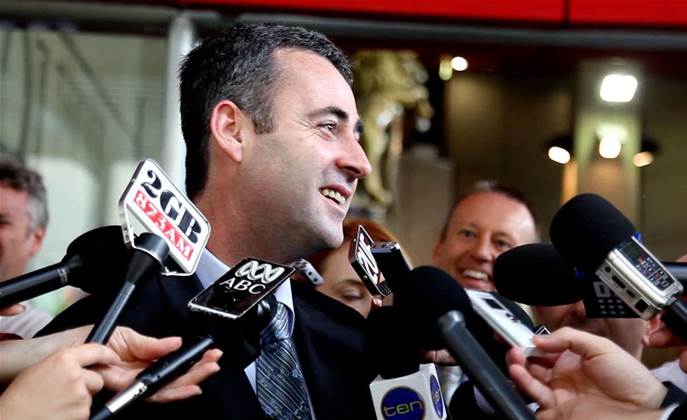The High Court has granted Hollywood studios special leave to appeal a long-running copyright battle against internet service provider iiNet.

The consortium of 34 studios, represented by the Australian Federation Against Copyright Theft (AFACT), was required to serve a notice of appeal to the court and iiNet within 14 days.
High Court Justices Susan Crennan and Robert French also requested the parties provide summaries or "specimens" of the initial evidence served during past Federal Court hearings within two days.
The case could be heard in the High Court in Canberra as early as October.
Leave was granted on five of the six appeal grounds raised by AFACT in Sydney today.
Four were granted unopposed and a fifth with clarification from counsel.
The grounds covered the central issue of 'authorisation' of infringing activities. They also included arguments that:
- Federal Court Justices Arthur Emmett and John Nicholas erred in considering whether iiNet had “sufficient knowledge” of the infringing acts to support authorisation of infringement; and
- Film studios should not be required to provide "cogent evidence" of infringements and reimburse providers for the costs of combating piracy.
A sixth ground, in which AFACT argued iiNet should have been found to authorise infringement based on evidence provided to the Federal Court, was refused leave.
The second ground, granted tenuously, regarded iiNet's power to prevent or discourage users from infringing copyright over its network.
iiNet's lead barrister Richard Cobden argued the second question of leave was based on a tenuous premise that the service provider had communicated it would take no steps against copyright infringement by its subscribers on the network.
He argued the question was based on a press release issued by iiNet on November 20, 2008, when AFACT filed suit against iiNet for allegedly allowing copyright infringement activities on its network.
Cobden argued the press release was "such a flimsy basis" for establishing authorisation of alleged infringement that the appeal ground had "no prospect of success".
"There was no evidence that it had been published in any newspaper, no evidence it had been picked up by any publication," he said.
AFACT had sought a High Court appeal in March following a majority judgment by the full bench of the Federal Court in iiNet's favour a month earlier.
Though two of the three Federal Court judges agreed in iiNet's favour, the February judgment made more concessions to the studios, on which AFACT hoped to mount its latest appeal.
Lead barrister for the studios David Catterns QC argued today that service providers submit to a "practical test" that would enforce the rights of copyright owners at a "higher level" than the perpetrator; in this case, the service provider, rather than an individual user.
It was indicated arguments would continue to revolve around the application of the 1975 suit between the University of NSW and Moorhouse, which featured prominently as the basis for AFACT's argument in initial Federal Court hearings in 2009.
“We’ve always been open to meaningful negotiations and there have been some correspondence and discussions taking place,” he said. “We’re happy to continue with those discussions.”
He said a memorandum of understanding signed by six major service providers in the US and various copyright holders earlier this year could be possible between Australian providers and local holders. The agreement saw providers agree to a six-strike policy for users found to illegally download material.
iiNet chief executive Michael Malone said in a statement he was open to an industry-wide decision on the matter.


_(20).jpg&h=140&w=231&c=1&s=0)

.png&h=140&w=231&c=1&s=0)
_(33).jpg&h=140&w=231&c=1&s=0)





 iTnews Executive Retreat - Security Leaders Edition
iTnews Executive Retreat - Security Leaders Edition
 iTnews Benchmark Awards 2026
iTnews Benchmark Awards 2026
 iTnews Cloud Covered Breakfast Summit
iTnews Cloud Covered Breakfast Summit
 The 2026 iAwards
The 2026 iAwards











_(1).jpg&h=140&w=231&c=1&s=0)



